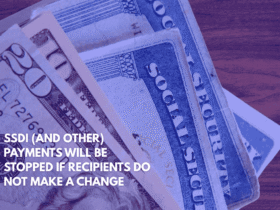If you’re looking for the exact dates your Social Security payment will arrive this June 2025, we’ve got you covered. The Social Security Administration (SSA) sends out payments based on your birth date for individuals who claimed their benefits after May 1997. Here’s a simple breakdown of when you can expect your payment.
Payment Dates Based on Your Birthdate
The payment dates depend on your date of birth. Let’s take a look:
- For those born between the 1st and 10th of the month, you’ll receive your payment on Wednesday, June 11th.
- For those born between the 11th and 20th, your payment will arrive on Wednesday, June 18th.
- For those born between the 21st and 31st, expect your payment on Wednesday, June 25th.
It’s really as simple as that! Just check your birthday to figure out when to expect your Social Security benefits.
What About Supplemental Security Income (SSI)?
If you’re someone who receives both retirement benefits and SSI, there is an important detail to note. Since June 1st fell on a weekend, the regular June SSI payment was moved up to Friday, May 30th. As a result, there will be no SSI payment in June since you’ve already received it in May.
Maximum Social Security Benefits in 2025
The amount you can receive from Social Security depends on when you decide to retire. If you’re planning on retiring soon, here’s what you need to know about maximum monthly benefits:
- If you retire at age 62 (the minimum retirement age), the maximum monthly benefit is $2,831.
- If you wait until full retirement age (which is 67 for those born in 1960 or later), the maximum benefit increases to $4,018 per month.
- And if you wait until you’re 70, the monthly benefit rises dramatically to $5,108.
These maximum amounts are based on having contributed the maximum amount for at least 35 years of your working life. Each additional year you work past your full retirement age adds credits that can significantly boost your benefits, so it’s worth considering if your health and job allow it.

What’s the Deal with Social Security Overpayments?
Social Security overpayments have been a topic of controversy lately. The SSA has been adjusting how they recover overpaid amounts, which is known as “clawback.”
- Before March 2025, the SSA could only withhold 10% of your monthly benefits to recover overpayments.
- After March 27, 2025, the SSA changed the rules to allow withholdings of up to 100% of monthly payments for new overpayment cases.
- However, by April 25, 2025, the SSA revised its policy again and now limits withholding to 50% of the monthly benefits for new cases.
If you’re notified of an overpayment, it’s important to act quickly. You can appeal the decision if you think there was a mistake, or request an exemption if you can prove that paying the overpayment would cause you serious hardship. While your appeal or exemption is under review, the SSA cannot garnish your benefits.
How Unpaid Student Loans Can Affect Your Social Security Payments
Another issue affecting some Social Security beneficiaries is unpaid student loans. The federal government can garnish your Social Security check to cover unpaid federal student loan debt, even if you’re already retired.
If you have defaulted on federal student loans, the government can take up to 15% of your Social Security benefits to cover that debt. This can significantly impact your monthly budget, especially for older individuals. There are an estimated 450,000 borrowers aged 62 and older who are in default and could be affected.
Luckily, there’s a temporary pause on garnishing Social Security benefits for student loan debts, thanks to a decision by the Department of Education under the Trump Administration. So for now, Social Security payments will not be garnished to recover student debt.











Leave a Reply